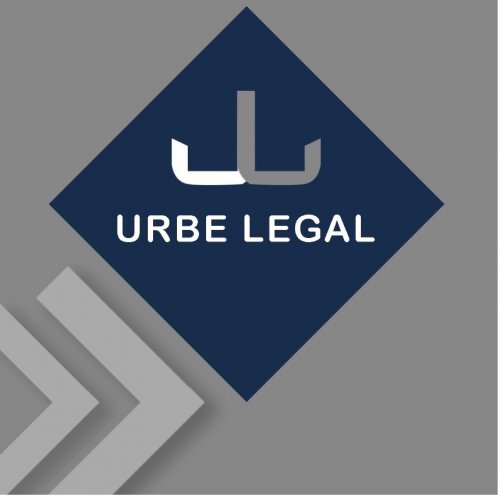Best Contract Lawyers in Guatemala
Share your needs with us, get contacted by law firms.
Free. Takes 2 min.
Or refine your search by selecting a city:
List of the best lawyers in Guatemala
About Contract Law in Guatemala
Contract law in Guatemala is primarily governed by the Civil Code and commercial laws. Contracts are considered binding agreements between parties that create enforceable rights and obligations. The principles of offer, acceptance, consideration, and mutual consent form the basis of Guatemalan contract law. It ensures that agreements made between individuals and businesses are executed fairly and equitably, providing a legal framework for resolving disputes.
Why You May Need a Lawyer
Seeking legal advice is crucial in various situations involving contracts. Here are some common scenarios where a lawyer's expertise may be necessary:
- Drafting and reviewing contracts to ensure all terms are clear and enforceable.
- Negotiating contract terms to protect your interests.
- Resolving disputes or breaches of contract through negotiation or litigation.
- Understanding complex contractual obligations and rights.
- Ensuring compliance with local and international laws in business transactions.
Local Laws Overview
Guatemalan contract law emphasizes the freedom of contract, allowing parties to tailor agreements according to their needs, provided they comply with legal standards. Some key aspects include:
- The requirement for express consent from all parties involved.
- The necessity of a lawful object and purpose for the contract to be valid.
- The importance of clarity in terms, especially in cross-border agreements.
- Rulings on breach of contract and the categorization of damages.
- Specific regulations governing commercial contracts under the Commercial Code.
Frequently Asked Questions
What constitutes a valid contract in Guatemala?
A valid contract in Guatemala must have mutual consent, a lawful object, and a determined or determinable subject matter. It should also comply with any formalities required by law.
Do contracts need to be written to be enforceable?
No, oral contracts can be enforceable, but written contracts are preferred as they provide clear evidence of the terms agreed upon.
How can a contract be legally terminated?
Contracts can be terminated by mutual agreement, fulfillment of the contractual terms, expiration, or breach by one of the parties.
What remedies are available for breach of contract?
Remedies include compensation for damages, specific performance, or contract rescission. The appropriate remedy depends on the nature and severity of the breach.
Are international contracts recognized in Guatemala?
Yes, international contracts are recognized, but they must comply with Guatemalan law to be enforceable within the country.
How does the law handle contract disputes?
Disputes can be resolved through negotiation, mediation, arbitration, or litigation, with the aim of reaching a fair settlement or judicial resolution.
What is force majeure, and how is it applied?
Force majeure refers to unforeseeable events that prevent fulfilling contractual obligations. Guatemalan law may relieve the affected party from liability under certain conditions.
Can minors enter into contracts?
Minors generally cannot enter into contracts unless authorized by a legal guardian, except for certain contracts considered beneficial or essential for their needs.
Are non-compete clauses enforceable in Guatemala?
Non-compete clauses are enforceable if they are reasonable in scope, duration, and geographic area and do not infringe on economic freedom.
What is a standard form contract?
Standard form contracts are pre-prepared agreements often used in business transactions, where one party sets the terms, and the other agrees without negotiation.
Additional Resources
For further assistance, consider reaching out to the following resources and organizations:
- The Guatemalan Bar Association for legal representation and professional advice.
- The Ministry of Economy for guidance on commercial and contract legislative provisions.
- Local law schools that may offer clinics or resources to those needing legal guidance.
Next Steps
If you find yourself in need of legal assistance regarding contracts, here are some steps you can take:
- Identify your specific needs related to the contract in question.
- Consult with a qualified lawyer experienced in Guatemalan contract law to discuss your situation and explore your options.
- Gather all relevant documentation and evidence related to the contract.
- Make an informed decision on how to proceed, whether it is pursuing negotiation, mediation, or legal action.
- Stay informed about your rights and obligations under Guatemalan contract law.
Lawzana helps you find the best lawyers and law firms in Guatemala through a curated and pre-screened list of qualified legal professionals. Our platform offers rankings and detailed profiles of attorneys and law firms, allowing you to compare based on practice areas, including Contract, experience, and client feedback.
Each profile includes a description of the firm's areas of practice, client reviews, team members and partners, year of establishment, spoken languages, office locations, contact information, social media presence, and any published articles or resources. Most firms on our platform speak English and are experienced in both local and international legal matters.
Get a quote from top-rated law firms in Guatemala — quickly, securely, and without unnecessary hassle.
Disclaimer:
The information provided on this page is for general informational purposes only and does not constitute legal advice. While we strive to ensure the accuracy and relevance of the content, legal information may change over time, and interpretations of the law can vary. You should always consult with a qualified legal professional for advice specific to your situation.
We disclaim all liability for actions taken or not taken based on the content of this page. If you believe any information is incorrect or outdated, please contact us, and we will review and update it where appropriate.
Browse contract law firms by city in Guatemala
Refine your search by selecting a city.

















